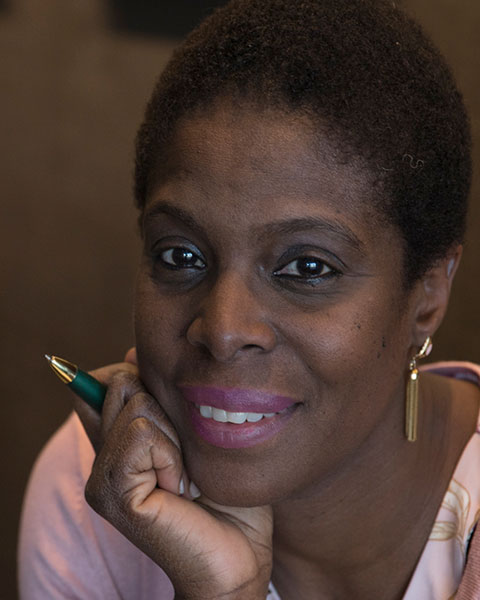
New York State Gov. Kathy Hochul announced seven appointments to the new 400 Years of African-American History Commission on Feb. 23, and a Binghamton University professor is among them.
Among the appointees was Anne Bailey, a professor of history and co-director of the Harriet Tubman Center for Freedom and Equity. Bailey was appointed to the commission not only for her role at BU but also for her writing and research in African American history, which has been published by organizations such as the Cambridge University Press. Her book “The Weeping Time: Memory and the Largest Slave Auction in American History” describes her concept of “living history,” in which she details how events of the past are connected to contemporary issues and events. In 2013, she was asked to share her work and research at the United Nations, where she gave a speech on the the 150th anniversary of the Emancipation Proclamation.
The 400 Years of African-American History Commission is a federally appointed committee, established by the secretary of the interior in accordance with the 400 Years of African-American History Commission Act passed by Congress in 2018. The commission gets its name from a commemoration of the 400th anniversary of the arrival of Africans to the British Colonies in 1619.
In addition to seven individuals appointed by Hochul, it also includes one member appointed by the secretary of state, one member by the commissioner of education, two members appointed by the temporary president of the Senate, two members appointed by the speaker of the Assembly, one member appointed by the Senate minority leader and one member appointed by the Assembly minority leader.
Bailey said she hopes the commission will provide recognition for African Americans.
“I believe this commission is important because 400 years of the consistent presence of people of African descent in the [United States] means 400 years of contribution,” Bailey wrote in an email. “These contributions, as you can imagine, have not always been acknowledged (and for 250 years of slavery they were uncompensated). Gov. Hochul and the legislators who sponsored this bill were right to give this issue time and attention.”
Bailey’s work spans across continents and countries, being influenced by her birth in Jamaica to extended stays in Paris, London and West Africa, before her eventual immigration to New York City where she attended high school. She attended Harvard University for her bachelor’s degree, double-majoring in English and French before obtaining her doctorate in African history and African diaspora studies from the University of Pennsylvania.
Following the federal government’s creation of the Commission in 2018, states have started to form their own commissions to focus more on the local history of African Americans in their respective states. New York state established its own commission in the 2019-2020 legislative sessions. Partnering with community-based organizations, the 400 Years of African-American History Commission hopes to bring people together through events, activities and educational research.
“I do hope though that the commission, in conjunction with community groups, will focus on highlighting the state’s history as well as historical preservation,” Bailey wrote. “There are many extraordinary people of African descent who have made [New York] a great state. Harriet Tubman is one such individual. How many people realize that she blazed trails on the Underground Railroad network right here in upstate [New York] and that after the Civil War she actually settled in Auburn, [New York] with the assistance of fellow abolitionist William Seward?”
Bailey is also involved with the Tubman Center, which opened in fall 2021. The center aims to enhance diversity, improve education about Black, Indigenous and people of color (BIPOC), and create an equitable environment at BU. The Center is currently raising funds to erect a statue in honor of Tubman, with 2022 being the bicentennial of her birth.
Bailey shared her hopes for the future of BU and the Tubman Center.
“For me, BU, especially in the last few years, as director of the Harriet Tubman Center, has been a great place to not only teach and share this history but also to learn much from my colleagues like Dr. Sharon Bryant as well as my students,” Bailey wrote. “I do hope that eventually when people think of BU, along with our famous Bearcat, they will think of Tubman and her multicultural band of fellow abolitionists who struggled for freedom and equity for all in America.”
Gov. Hochul commented on the importance of education and preservation of New York state’s history in the closing of her speech.
“We must recognize and acknowledge shameful chapters in our state’s past, ensure New Yorkers have a better understanding of our history, and fight racism and bigotry in all forms,” Hochul said. “These actions will help us understand our history better, while pushing us to continue making progress.”
Justin Reveles-Ibarra, a junior majoring in biology and member of the BIPOC community, praised Bailey’s appointment.
“I think this was a great decision by Gov. Hochul,” Reveles-Ibarra said. “This appointment and the commission itself will serve as a beacon of remembrance for all the history we are not taught in schools. All the history that we choose to ignore, will be ignored no longer.”


